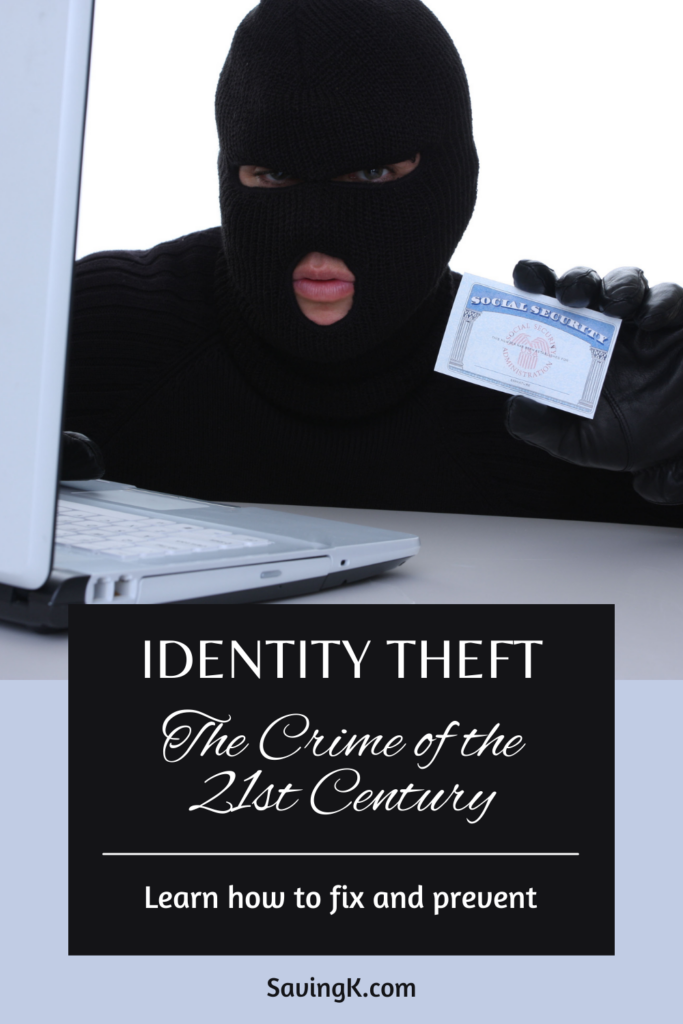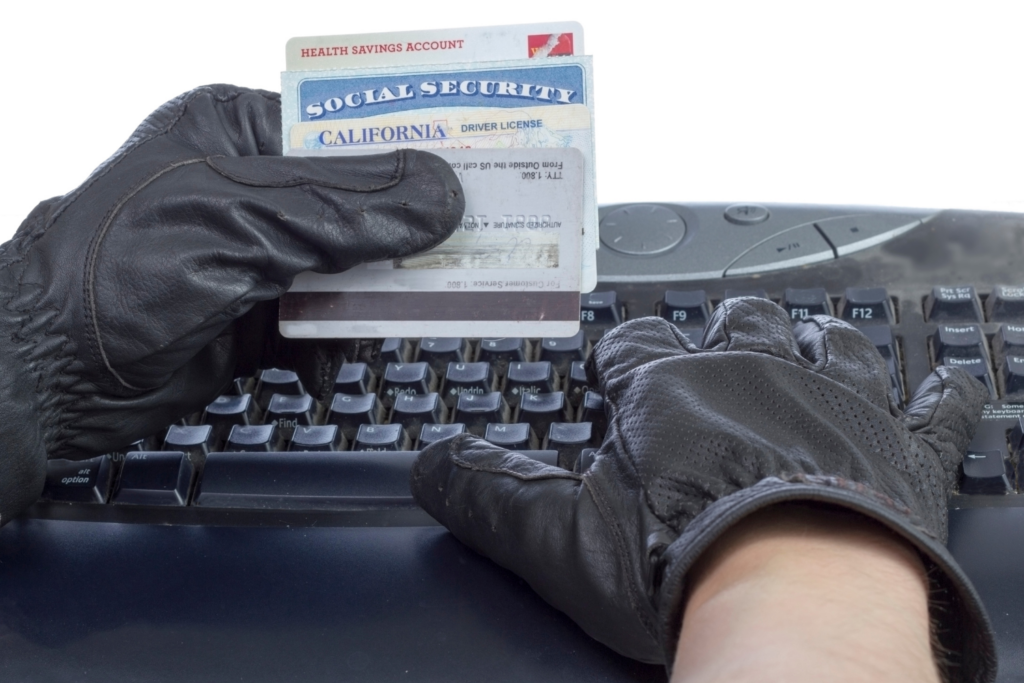
Identity theft is a serious crime that can have devastating consequences for its victims. Identity theft occurs when someone uses your personal information, such as your name, Social Security number, or credit card number, without your permission, to commit fraud or other crimes. According to the Federal Trade Commission (FTC), identity theft is one of the fastest-growing crimes in the United States.
There are many ways that criminals can obtain your personal information. They may go through your trash looking for bills or other documents that contain your personally identifiable information. They may also pose as a legitimate business in order to get you to provide them with your personal information. Additionally, identity thieves may hack into databases that contain your personal information or they may purchase lists of personal information from other criminals.
Once they have obtained your personal information, identity thieves can use it to open new credit card accounts, take out loans in your name, or make purchases in your name. They may also use your identity to commit other crimes such as filing false tax returns or obtaining government benefits.
Identity theft can have a major financial impact on its victims. You may have to deal with fraudulent charges on your credit card, you may be denied loans because of bad credit that was caused by identity fraud, and you may even be arrested for crimes that you did not commit. In addition to the financial cost, identity theft can also cause a great deal of emotional stress.
If you believe that you may have been a victim of identity theft, it is important to take action immediately. You should report the crime to the police and to the credit bureaus. You should also take steps to protect your identity in the future by being more careful about who has access to your personal information and by monitoring your credit report regularly.
Contents
Tips for Identity Theft Prevention
There are a number of things that you can do to protect yourself.
- First, you should never give out your personal information to anyone unless you are absolutely sure that they are legitimate.
- Second, you should shredded any documents that contain your personally identifiable information before throwing them away.
- Third, you should monitor your credit report regularly and report any suspicious activity immediately.
- Finally, you should keep a close eye on your bank and credit card statements and report any unauthorized charges immediately.
Identity Theft Protection
There are a number of different identity theft protection services available. Some of these services will monitor your credit report for suspicious activity and will alert you if anything is found. Other services will provide you with insurance in case you become a victim of identity fraud. Still other services will help you to recover your identity if you do become a victim.
Best Identity Theft Protection Services
Here are the top picks for the best identity theft protection services from Money Magazine:
- Aura – Best for Multiple Devices
- Identity Guard – Best for Fast Alerts
- LifeLock – Best Features (our choice)
- IdentityForce – Best for Comprehensive Protection
- ReliaShield – Best Family Plans
- IdentityIQ – Best for Credit Monitoring Services
- IDShield – Best for Restoration
When choosing an identity theft protection service, it is important to choose one that offers the features that you need. You should also consider the cost of the service and whether or not it is worth the price.
What to Do if You Become a Victim
Identity theft is a serious crime that can have devastating consequences for its victims. If you believe that you may have been a victim, it is important to take action immediately in order to minimize the damage. You should report the crime to the police and to the credit bureaus. You should also change your passwords and PIN numbers for all of your accounts. In addition, you should monitor your credit report closely and dispute any inaccuracies that you find. Finally, you should file a complaint with the Federal Trade Commission (FTC).
Identity Theft Movies
There are a number of movies about identity theft that have been released in recent years. These movies can be helpful in educating yourself about the dangers of identity fraud and how to protect yourself from it. Some of the more popular identity theft movies include:
- Identity Thief starring Jason Bateman and Melissa McCarthy
- Catch Me If You Can starring Leonardo DiCaprio and Tom Hanks (based on a true story)
- The Net starring Sandra Bullock
Identity Theft Books
There are a number of identity theft books that have been published in recent years. These books can also be helpful in educating yourself about the dangers and how to protect yourself. Some of the more popular identity theft books include:
- The identity Crisis
- Spychips: How Major Corporations and Government Plan to Track Your Every Move with RFID
Identity Theft FAQs
Here are some frequently asked questions about identity theft.
Identity theft is the unauthorized use of another person’s personal information in order to commit fraud or other crimes. Identity theft occurs when someone uses your personal information without your permission for their own criminal purposes. identity thieves may use your name, Social Security number, or credit card number to commit fraud or other crimes.
Common methods include stealing credit card information, stealing personal identifying information such as Social Security numbers, and using false identities to apply for loans or credit cards.
The consequences can be severe. Victims may have to deal with fraudulent charges on their credit cards, they may be denied for loans because of bad credit that was caused by identity theft, and they may even be arrested for crimes that they did not commit. In addition to the financial and legal consequences, identity fraud can also cause a great deal of emotional stress.
There are a number of things that you can do to protect yourself. First, you should never give out your personal information to anyone unless you are absolutely sure that they are legitimate. Second, you should shredded any documents that contain your personally identifiable information before throwing them away. Third, you should monitor your credit report regularly and report any suspicious activity immediately. Finally, you should keep a close eye on your bank and credit card statements and report any unauthorized charges immediately.
If you become a victim, it is important to take action immediately in order to minimize the damage. You should report the crime to the police and to the credit bureaus. You should also change your passwords and PIN numbers for all of your accounts. In addition, you should monitor your credit report closely and dispute any inaccuracies that you find. Finally, you should file a complaint with the Federal Trade Commission (FTC).
Identity theft can have a major impact on your credit score. If your identity is stolen and used to open new accounts, your credit score will go down. Additionally, if identity thieves rack up debt in your name, it will also negatively impact your credit score. Finally, if you have to close any accounts that have been compromised, it will also lower your credit score.
Identity theft insurance is a type of insurance that will reimburse you for certain expenses that you incur as a result of identity theft. For example, this insurance may reimburse you for the cost of replacing your driver’s license or for the cost of hiring an attorney to help you clear your name. This type of insurance is not required, but it may be something to consider if you are worried about identity theft.
There are a number of different identity theft protection services available. Some services offer credit monitoring, while others offer identity theft insurance. There is no one “best” identity theft protection service, as the best service for you will depend on your individual needs and preferences.
A credit freeze is a way to protect your credit from getting your identity stoeln. When you place a credit freeze on your account, it prevents new creditors from accessing your credit report. This makes it difficult for identity thieves to open new accounts in your name. Credit freezes are free and you can place or lift a freeze at any time.
A credit report is a record of your credit history. It includes information about your credit accounts, your payment history, and any derogatory information such as bankruptcies or foreclosures. Your credit report is used by lenders to determine whether or not to extend you credit. You are entitled to one free credit report from each of the three credit bureaus every year.
A credit bureau is a company that collects information about your credit history and provides it to lenders. There are three major credit bureaus in the United States: Equifax, Experian, and TransUnion. Your credit report is generated from information that is collected by the credit bureaus.
A FICO score is a numerical representation of your creditworthiness. Your FICO score is based on information in your credit report. The higher your FICO score, the better your credit score. A good FICO score is generally considered to be 700 or above.
Conclusion
Identity theft is a serious crime that can have severe consequences for victims. If you think that you may be a victim of identity theft, it is important to take action immediately in order to minimize the damage. There are a number of things that you can do to protect yourself from identity theft, and there are also a number of resources available to help you if you do become a victim.





